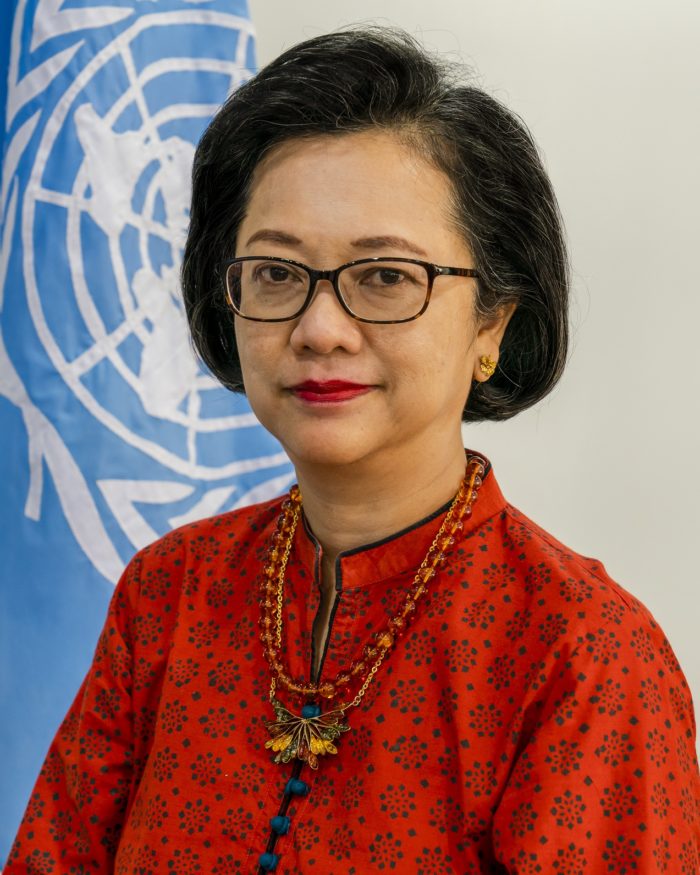Participation in global and regional supply chains has been one of the most reliable economic growth strategies, especially for developing countries in Asia and the Pacific. Smooth and efficient connectivity in both trade and transport has been indispensable to the region’s pursuit of the 2030 Agenda for Sustainable Development.

Yet, containment measures for the COVID-19 pandemic have significantly interrupted production, transport, and distribution of essential goods. They exposed vulnerabilities in supply and underscored the costs of border procedures for transport and trade, which require extensive human contacts and increase the risk of infection. Small and medium-sized enterprises (SMEs), which worked hard to enter supply chains, saw their livelihoods gone.
As COVID-19 crisis forced us to catch up with the digital future much faster than usual, there have been tremendous opportunities offered through digitalization. Trade and supply connections still functioned during lockdowns as customs and other government institutions not only streamlined their procedures but also turned to contactless and paperless trade. SMEs surviving the crisis did so because of their agility to speedily move to digital business operations. Businesses in textile, apparel, footwear, transport, and other sectors have almost entirely converted to digital operation.
Though a partial digital transition has occurred, supply chains face challenges in economies grappling with inferior quality and costly digital connectivity. The public sector now must catch up with the private sector to speed up moving government services to digital platforms. Creating enabling legal environment and investing in hard digital infrastructure must be prioritized in COVID-19 recovery packages.
Businesses, supported by their associations, are keen to adopt environmental sustainability principles as an innovation mindset by taking opportunity of global reshoring and redrafting of supply chains. Re-enabling trade and investment and strengthening connectivity can only be done with coordinated and collaborative government actions at the regional level based on mutual trust, solidarity, and sustainability.
Trade, connectivity and global supply chains, particularly sustainable and green trade, is not a zero-sum game. To achieve that, platforms on trade and transport initiatives to rally regional solutions to cross-border challenges are essential.
Developing appropriate provisions in Regional Trade Agreements (RTAs) can address crises like the pandemic. Despite countries in Asia and the Pacific having more than half of the world’s RTAs, not many have specific provisions to govern trade policy in situations like COVID-19 pandemic. With a relatively weak multilateral trading system, a “free for all” behavior has developed, with many countries imposing trade restrictions without any regard for the international rules or those under the RTAs they have signed. The ongoing UN-wide initiative to develop model provisions in RTAs to address a pandemic-like crisis is a significant step forward.
Enhanced support for trade facilitation, trade digitalization and development of paperless and contactless trade remains a priority. Accelerating trade digitalization is key to progress. The Framework Agreement on Facilitation of Cross-border Paperless Trade in Asia and the Pacific is expected to cut trade costs by 25 percent.
Finally, we must move forward rapidly to achieve digital, resilient, and decarbonized regional connectivity. The platforms provided by the Asian Highway Network and the Trans-Asian Railway Network have already brought countries together to capture and analyze their policy responses and impacts on regional connectivity. This resulted in concrete proposals on collaborative actions to improve its pandemic response in Asia and the Pacific.
Despite standing at a difficult crossroads, we can ensure that the path ahead is stronger, smoother, and well-connected than before. Through ongoing partnerships among the United Nations family, the United Nations Economic and Social Commission for Asia and the Pacific (ESCAP) is working together with member States and the private sector to accelerate achievement of the Sustainable Development Goals and realize a sustainable recovery from the COVID-19 crisis.
The author is Armida Salsiah Alisjahbana, the United Nations Under-Secretary-General and Executive Secretary of the UN Economic and Social Commission for Asia and the Pacific.

